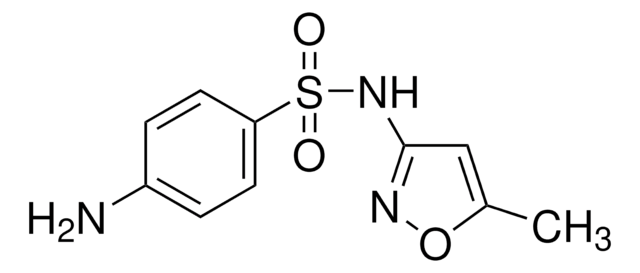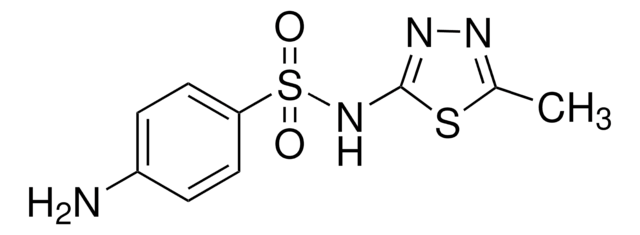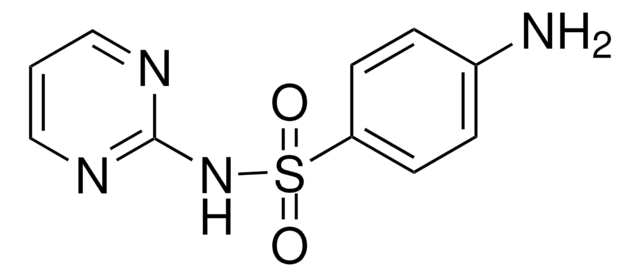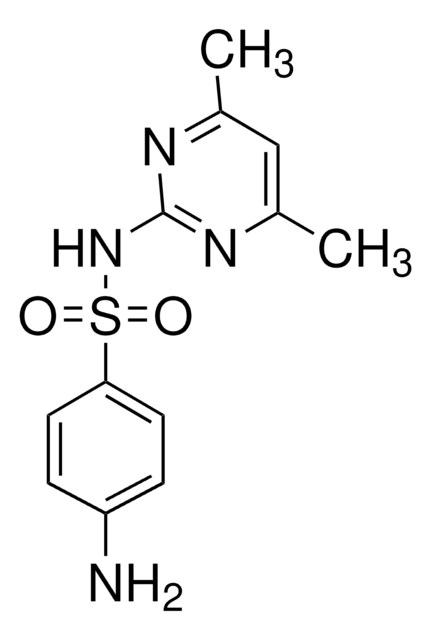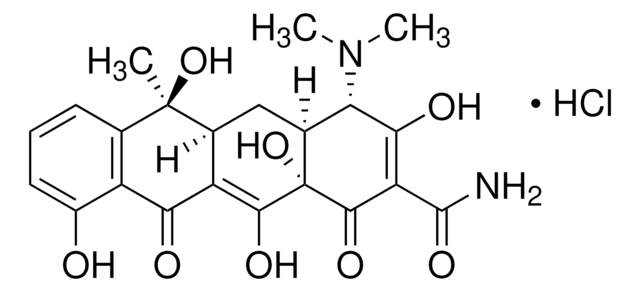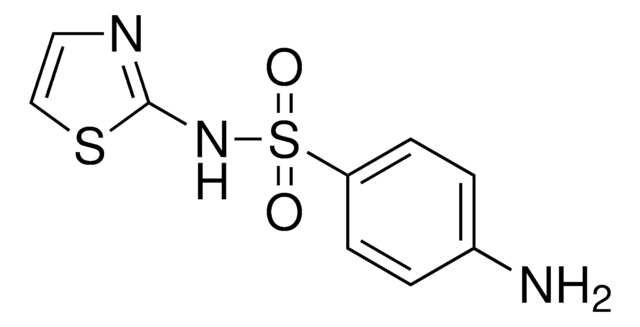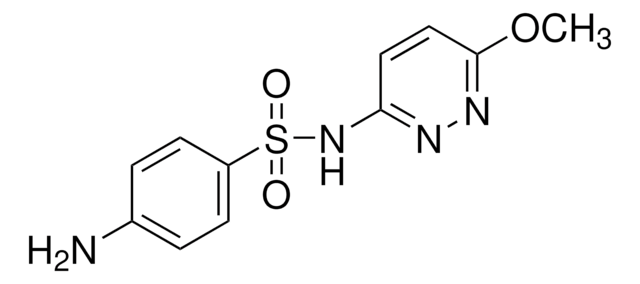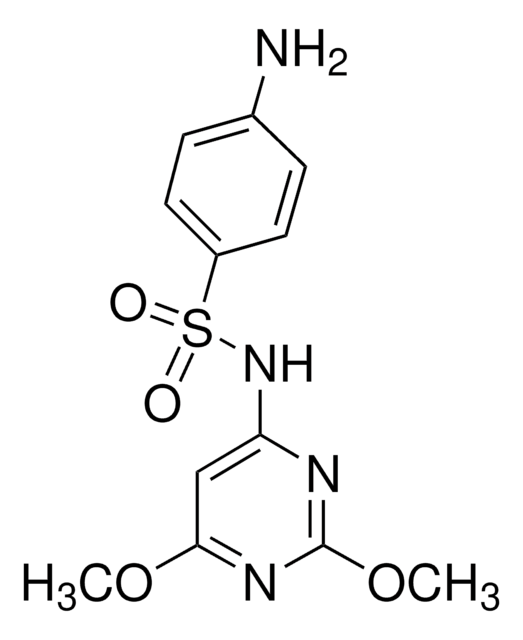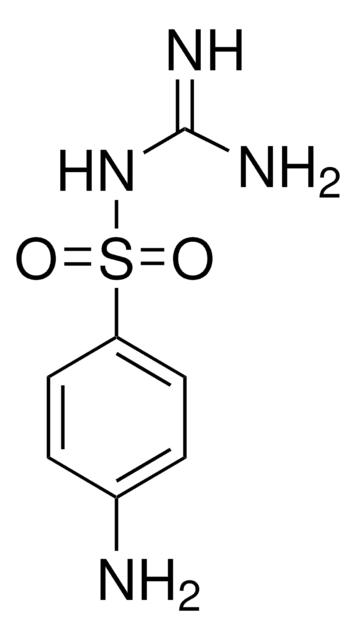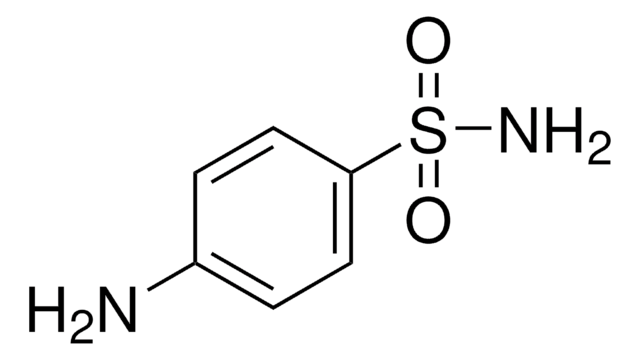S5632
Sulfamethizole
analytical standard, ≥99% (HPLC)
Synonym(s):
4-Amino-N-(5-methyl-1,3,4-thiadiazol-2-yl)benzenesulfonamide, N1-(5-Methyl-1,3,4-thiadiazol-2-yl)sulfanilamide, Sulfamethylthiadiazole
About This Item
Recommended Products
grade
analytical standard
Quality Level
agency
EPA 1694
assay
≥99% (HPLC)
technique(s)
HPLC: suitable
gas chromatography (GC): suitable
application(s)
clinical testing
format
neat
storage temp.
2-8°C
SMILES string
Cc1nnc(NS(=O)(=O)c2ccc(N)cc2)s1
InChI
1S/C9H10N4O2S2/c1-6-11-12-9(16-6)13-17(14,15)8-4-2-7(10)3-5-8/h2-5H,10H2,1H3,(H,12,13)
InChI key
VACCAVUAMIDAGB-UHFFFAOYSA-N
Looking for similar products? Visit Product Comparison Guide
Related Categories
General description
Application
Choose from one of the most recent versions:
Certificates of Analysis (COA)
Sorry, we don't have COAs for this product available online at this time.
If you need assistance, please contact Customer Support.
Already Own This Product?
Find documentation for the products that you have recently purchased in the Document Library.
Customers Also Viewed
Our team of scientists has experience in all areas of research including Life Science, Material Science, Chemical Synthesis, Chromatography, Analytical and many others.
Contact Technical Service